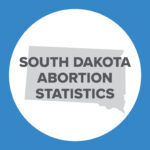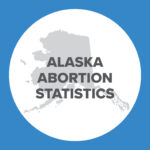Charlotte Lozier Institute Adds Five New Scholars

The Charlotte Lozier Institute (CLI) has added five experts in science and bioethics to the ranks of its associate scholars’ team.
“Richard Doerflinger, Maria Feeney, Katherine Rafferty, Tara Sander Lee, and Kathleen Schmainda have already made significant contributions to building a culture of life through their research, writing, and speaking. Charlotte Lozier Institute is honored to welcome these respected, highly accomplished experts to our list of scholars covering the most pressing life-related issues of the day,” said Chuck Donovan, president of Charlotte Lozier Institute.
CLI now boasts 36 associate scholars who research, write, and speak on a wide variety of life issues including abortion, women’s health, prenatal diagnosis and treatment for the unborn, perinatal hospice, abortion reporting policy, sex-selection abortion, stem cell research and medicine, and health care policy.
The new associate scholars are listed below with their full biographies.

Richard M. Doerflinger is a Public Policy Fellow with the University of Notre Dame’s Center for Ethics and Culture and an Adjunct Fellow in Bioethics and Public Policy at the National Catholic Bioethics Center in Philadelphia. He was formerly Associate Director of the Secretariat of Pro-Life Activities for the United States Conference of Catholic Bishops, where he worked for 36 years. Among his duties was the preparation of policy statements and congressional testimony on abortion, euthanasia, conscience rights in health care, embryo research, and other medical-moral issues for the bishops’ conference. He also serves on the Advisory Board to The Center for Bioethics & Human Dignity.
Mr. Doerflinger has testified before Congress, the National Bioethics Advisory Commission, the National Institutes of Health, the Presidential Commission for the Study of Bioethical Issues, and several state legislatures on the way public policy treats human life at its most vulnerable stages. His writings on medical ethics and public policy include contributions to The Journal of Law, Medicine & Ethics, the Hastings Center Report, Duquesne Law Review, Cell Proliferation, the Kennedy Institute of Ethics Journal, the Encyclopedia of Catholic Doctrine (Our Sunday Visitor Press 1997), the National Catholic Bioethics Quarterly, and the American Journal of Bioethics. He holds a BA degree and an MA in Divinity from the University of Chicago, and conducted doctoral studies in Theology at that institution and the Catholic University of America.
In January 2009, Mr. Doerflinger became one of the first recipients of the Gerard Health Foundation’s “Life Prize,” honoring efforts to awaken the conscience of America to the sanctity of human life. In April 2011, he became the first recipient of the “Evangelium Vitae Medal,” awarded annually by the University of Notre Dame’s Center for Ethics and Culture “to honor individuals whose outstanding efforts have served to proclaim the Gospel of Life by steadfastly affirming and defending the sanctity of human life from its earliest stages.”

Dr. Feeney currently serves as a scientific consultant based near Milwaukee, Wisconsin. She has trained and worked in the areas of chemistry, biochemistry, bioanalytical chemistry, pharmaceutics, and biotechnology. Her interests include proteomics, post-translational modifications of proteins, oxidative stress, diabetes, mass spectrometry, and chromatography.
Dr. Feeney earned her Ph.D. in Pharmaceutical Chemistry from The University of Kansas and her Bachelor of Science in Chemistry, with a minor in Philosophy, from Saint Louis University. She has conducted laboratory research at various academic institutions and in the biotechnology industry.
As a Madison and Lila Self Graduate Fellow at The University of Kansas, she completed specialized training in leadership, communication, public policy, and business, alongside colleagues from a variety of disciplines in science, engineering, and the humanities.
She has organized student groups, written commentaries, testified in state legislatures, and worked to create a network of scientists in support of ethical, life-affirming approaches to the challenges of biomedical research today, for the good of patients.

Dr. Rafferty is a lecturer at Iowa State University and previously worked as a Health Communication Specialist for the Centers for Disease Control and Prevention (CDC) in Atlanta, Georgia. She conducts research that lies at the intersection of interpersonal and health communication, with a focus on how patients and families manage and cope with chronic illness and end-of-life care. She is primarily a qualitative scholar, but has also used quantitative methods to examine research questions about family health communication. Dr. Rafferty earned her Ph.D. in Communication at University of Wisconsin-Milwaukee. More information about her current research can be found at www.fhcresearchlab.com.

Dr. Sander Lee obtained her Ph.D. in biochemistry from the Medical College of Wisconsin, followed by research fellowship training in cell and molecular biology at Harvard Medical School and Boston Children’s Hospital.
Dr. Sander Lee’s career has focused on the pathologic basis of disease in children. She directs a molecular diagnostics lab that performs genetic testing for the diagnosis and treatment of pediatric disorders such as cystic fibrosis, epilepsy, hearing loss, DiGeorge Syndrome, and hypercoagulation. Her research interests include pharmacogenetics and the development of novel diagnostic tests for the pediatric population. Dr. Sander Lee actively participates in legislative efforts that protect the preborn and promote ethical advances in healthcare.

Dr. Kathleen Schmainda is Professor of Radiology and Vice-Chair of Radiology Research at the Medical College of Wisconsin (MCW). She received a BSE in Biomedical Engineering from Marquette University, a Masters in Electrical Engineering from the Massachusetts Institute of Technology (MIT) as well as a Ph.D. in Medical Engineering jointly awarded by MIT and Harvard University. After completing a fellowship at Massachusetts General Hospital she returned to the Midwest and MCW where she has been since.
The primary focus of Dr. Schmainda’s research is the advancement of imaging technologies to improve the diagnosis, monitoring and development of new treatments for brain and other cancers. Dr. Schmainda has served on numerous National Institutes of Health grant review panels, has mentored many graduate and medical students and served on several national advisory boards for imaging and clinical trials. In early 2016, Dr. Schmainda was inducted into the American Institute for Medical and Biological Engineering (AIMBE) College of Fellows. Most recently she was named as a Distinguished Investigator of the Academy of Radiology Research, Radiological Society of North America.
Dr. Schmainda has embraced recent opportunities to speak out against use of abortion-derived fetal tissue for research with opinion pieces published in both local and national journals including the Milwaukee Journal Sentinel and USA Today. On this topic she has granted interviews to National Public Radio and given testimony at the Wisconsin State Senate hearings as well as for the U.S. House Select Investigative Panel on Infant Lives. Dr. Schmainda continues to assist with various legislative actions in defense of human life.




















